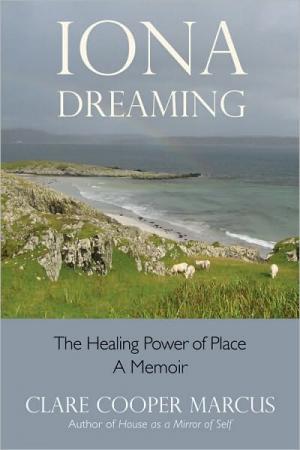Iona Dreaming: The Healing Power of Place

I felt deeply uncomfortable while reading Clare Cooper Marcus’ Iona Dreaming. Too uncomfortable, I thought—like eavesdropping on a stranger’s conversation with a long-lost friend.
Clare Cooper Marcus writes about a six-month, mostly solitary retreat spent on the small Scottish island of Iona. Twice a survivor of cancer, semi-retired academic professor, avid gardener, single mother of two, and author of several books, Marcus removes herself to Iona to focus on healing. In this book, she reflects on that experience and connects it to her wartime childhood spent in the English countryside, her experiences as a young wife and mother, and her cancer diagnoses and treatments. Throughout, Marcus crafts little vignettes and narratives from her adventures on the island, taking us through her brief stint as a waitress in a hotel café, long walks around the entire island, a run-in with bird-watchers, laundry day, and an encounter with the fairies.
If my brief description of the scope of Iona Dreaming leads you to believe it is incoherent, then the fault is my own, not Marcus’ prose. Even though the content of the book spans nearly her entire lifetime, Marcus’ writing conveys quiet and solitude. While reading, I often had the strange feeling that I was inhabiting Marcus’ innermost thoughts.
The intimacy of Marcus’ writing made me very uncomfortable when I first began the book, but by the time I finished it, I was grateful for it. First, I was delighted by the way she writes the island of Iona. Marcus’ academic work focuses on sense of place, and she writes about particular places with sensitivity and conviction. Second, Marcus writes herself with as much openness and sensitivity as she writes about Iona. I thought this an incredible connection and analogy: to think of oneself as a location or as a place.
While reading Iona Dreaming, it occurred to me that it could be very enlightening to consider how one conceives relationships to the external world in light of how one considers relationships to oneself: is the world (or oneself) an undisciplined thing to be mastered, or a natural thing to be appreciated? Feminists have written about the self and feminists have written about nature, but feminist work on place and on self with place could be quite fruitful. Though Marcus doesn’t say much about her relationship to feminism or to feminist thought, her lovely memoir may certainly provoke important feminist work in that area.